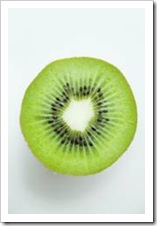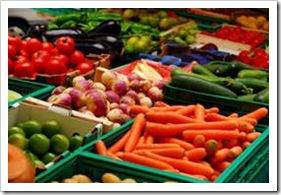Many times, I have protested against the inflation in ADD and ADHD diagnosis. I believe way too many kids are labeled with ADD or ADHD when there is some other explanation for their behavior. In this post, I want to share with you some things you can do to greatly help kids with learning difficulties and perhaps un-label them.
The good news: changing the kids’ diet can help!
When I present studies done about kids and food, I often hear criticism on the way the studies were done. I agree that studies may not 100% accurate and may not apply to everybody, but if you are a parent of a child who is struggling, trying something that is harmless can prove to be life saving. So, open your mind, keep reading and you may find something you can use for your own child.
 The first time I heard about the link between behavior and food was when I studied special education. It really made me wonder a lot about diagnosis. Can you imagine everyone whose job is to help kids with their challenges having to be a nutritionist?
The first time I heard about the link between behavior and food was when I studied special education. It really made me wonder a lot about diagnosis. Can you imagine everyone whose job is to help kids with their challenges having to be a nutritionist?
I remember asking one of my teachers, “Do you mean the results of the assessment can be different if we change the kids’ diet?”
“Yes, much different”, came the answer.
I had two feelings about this answer:
- Yes, Great! Wonderful! Good news! Very positive and encouraging!
- Hang on! We need to work with the parents on this, not the kids. What now?
Working with parents to improve their kids’ abilities and behaviors is the most effective way of helping kids, but it is harder. Most parents will easily give their kids medication and will even be willing to pay a fortune to help their kids, but the second it comes to their diet, things get tough.
I thought about it for a long time. It was at a time of my life when I was eating everything I saw at the supermarket (or everything I saw my mom buying from the supermarket. Oh, wait, it was actually my dad. He was the shopping parent). So at first, I thought about the way I was eating and examined my parents’ eating habits and realized that this food theory made perfect sense – we are what we eat!
Over time, I witnessed firsthand how food affects the behavior and performance of hundreds of kids, and I became more and more convinced they were related.
 There are many studies about ADHD and food. To make the studies more reliable, many of them include a test group. Test groups are identical to the study group, but they go without the change. In medical trials, the test group gets a placebo, which looks the same as the medicine, but has no effect, so none of the participants actually know what they are getting.
There are many studies about ADHD and food. To make the studies more reliable, many of them include a test group. Test groups are identical to the study group, but they go without the change. In medical trials, the test group gets a placebo, which looks the same as the medicine, but has no effect, so none of the participants actually know what they are getting.
Another way of making the studies more reliable is to conduct a blind study. In blind studies, none of the participants and none of the evaluators are aware of what the treatment is, who belongs to which group or any other details that might affect their judgment.
In studies about food and ADHD or ADD, test groups and blind studies were done and showed a clear indication that certain substances have a big impact on kids’ behaviors (Gal says that you do not need much research to discover this. All you need to do is stop drinking your coffee for 3 days…).
Treating ADHD with diet vs. medication
There are several major differences between diets and medication treatment for ADHD. All but one give the diet an advantage.
- Medication works quickly – Diets take time to work
- Medication has negative side effects – Diets have no negative side effects
- Medication is a short term treatment – Diets are long term treatment
- Medication is expensive – Diets are virtually free (you have to eat, right?)
 I remember the first parents I ever talked to his about eliminating food from their kid’s diet as a way of handling his challenges and behavior problems. The parents actually said to me, “This is too hard. Don’t you have an easy solution?” My answer was, “I do have an easy solution, but just like any other medication, it is going to start a whole new drama with many other challenges. Medication is a good way to guarantee that your kid’s special education teacher will remain in your life forever!”
I remember the first parents I ever talked to his about eliminating food from their kid’s diet as a way of handling his challenges and behavior problems. The parents actually said to me, “This is too hard. Don’t you have an easy solution?” My answer was, “I do have an easy solution, but just like any other medication, it is going to start a whole new drama with many other challenges. Medication is a good way to guarantee that your kid’s special education teacher will remain in your life forever!”
How to successfully change kids’ eating habits
- Treat the whole food change as an experiment. Have a theory, have a plan and record everything during the experiment. To allow you to compare, make a record of two weeks when you write every problematic incidence and rate its seriousness from 1 to 10. Also rate the whole day from 1 to 100, 1 being a horribly difficult day and 100 being a perfect day. You can later compare the results with the next two weeks, in which you change your kid’s diet.
- Here is a list of items that was found to effect kids’ behavior. Eliminating these types of food was found to greatly improve ADHD and other behavioral problems:
- Sugar
- Artificial colors
- Artificial flavors
- Artificial sweeteners
- Mono sodium glutamate (MSG)
- Salt
- Processed food – “junk food”
- Preserved food
- Artificially hardened fats like: margarine, shortening, hydrogenated oil
- Yeast
- Start as early as you suspect there is an issue. Young kids do not ask too many questions when you change their diet. The older they get, the more challenging it is. If they go to kindergarten or school, let their teachers know you are looking for the reason for their difficulties and you are trying different diets. Teachers are usually happy to help (they benefit too).
 The easiest way to handle food changes is to change everyone’s eating habits. If it is not good for a kid with ADHD, it is probably not good for the others in the family. Many health issues run in the family, so the kid got the food sensitivities from Mom or Dad. Most of the food found in studies to be affecting kid’s behavior was not healthy anyway. Get all the family members to participate and help. Explain the importance of it to everyone. Paint a picture of a happy life with a kid without ADHD.
The easiest way to handle food changes is to change everyone’s eating habits. If it is not good for a kid with ADHD, it is probably not good for the others in the family. Many health issues run in the family, so the kid got the food sensitivities from Mom or Dad. Most of the food found in studies to be affecting kid’s behavior was not healthy anyway. Get all the family members to participate and help. Explain the importance of it to everyone. Paint a picture of a happy life with a kid without ADHD.- Do not eliminate all the food items at once. The main problem is finding which one is causing the problem. Start with one food item and stick to eliminating it for 2 weeks.
- When you eliminate one food item from the diet, eliminate it completely. If the experiment is done half way, you will doubt the results. Read the labels on every product you buy and make sure your kid does not cheat while you are not there (this is the main reason they do not allow food swapping at school). I was surprised to discover there was milk in many food items. Make sure your experiment is clean.
- If your kids are young, make it a blind study by not telling them what you have taken off their diet. If they are older and you cannot control their eating completely, tell them exactly what needs to happen and seek their cooperation.
- If you know you are going to face resistance, start with the easy items to avoid. Make it easy for everyone. If there is something you do not eat often, start with it first. You may not see a huge improvement, but at least you will not have to face any resistance from the kids, which is the most challenging bit in this whole investigation.
- The easiest thing is to stop buying the eliminated food items for the duration of the trial. Of course, this means you cannot have them either, but if you want to know what it means to avoid some food, it will make it easier for you to appreciate the effort – it is hard to ask kids to do something you cannot do yourself. Lead by example and build team spirit for best results.
 A naturopath once said to me that the things I LOVE eating the most are probably not good for me. Ask your kids what they like eating the most and find out what these things contain.
A naturopath once said to me that the things I LOVE eating the most are probably not good for me. Ask your kids what they like eating the most and find out what these things contain.- I have a trick that always works. I go to the kids with a list and tell them, “Here is a list of items that might cause you to feeling bad. Pick the 3 you think are the most harmful to you”. Somehow, kids know what makes them feel bad. Tell your kids that the first 3 items that come into their mind are usually the most challenging food items. This is a good trick if you feel like the list is too big (if you do it slowly, it might take 2 years to go over all of them).
- Keep a journal. You will be surprised how strong perception can be and that you do not remember everything along the way. Recording is as important as eliminating the food. Research without a good recording system is worth nothing. Every day, write down what happened that day and rate it from 1 to 100. Keep a record for a while to see the differences and notice any improvements.
Remember, the results will affect your kids’ wellbeing and following it will affect yours!
Happy parenting,
Ronit
 The easiest way to handle food changes is to change everyone’s eating habits. If it is not good for a kid with ADHD, it is probably not good for the others in the family. Many health issues run in the family, so the kid got the food sensitivities from Mom or Dad. Most of the food found in studies to be affecting kid’s behavior was not healthy anyway. Get all the family members to participate and help. Explain the importance of it to everyone. Paint a picture of a happy life with a kid without ADHD.
The easiest way to handle food changes is to change everyone’s eating habits. If it is not good for a kid with ADHD, it is probably not good for the others in the family. Many health issues run in the family, so the kid got the food sensitivities from Mom or Dad. Most of the food found in studies to be affecting kid’s behavior was not healthy anyway. Get all the family members to participate and help. Explain the importance of it to everyone. Paint a picture of a happy life with a kid without ADHD. A naturopath once said to me that the things I LOVE eating the most are probably not good for me. Ask your kids what they like eating the most and find out what these things contain.
A naturopath once said to me that the things I LOVE eating the most are probably not good for me. Ask your kids what they like eating the most and find out what these things contain.










